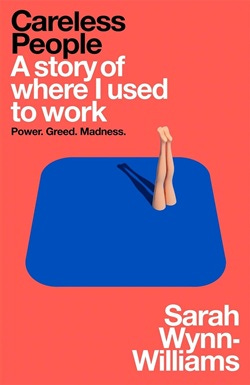Careless People and the Cost of Staying Silent
Power, complicity, and the personal price of speaking up
This week we’re stepping into a book that’s both deeply political and unflinchingly personal. Careless People by Sarah Wynn-Williams is about what happens when powerful people do bad things—and the systems that quietly enable them. It’s about the manipulation of democracy, the deliberate spread of misinformation, and the way tech giants (especially one in particular) shrugged off responsibility while the rest of the world paid the price.
It’s also about what it costs to speak out.
As someone who used to fan-girl Sheryl Sandberg—who read Lean In, underlined it, and believed in it—one of the most personally confronting parts of this book was the sheer complicity of that same woman in some of the ugliest corporate decisions. I wasn’t expecting to feel so gut-punched. But I did. It made me question a lot.
And yet, what makes this book really powerful is how relatable it is. For all the scale and political stakes, so much of Sarah Wynn-Williams' story felt alarmingly familiar. Like her, I worked through parental leave. Like her, I was my own worst enemy in that season. [I went into labour in the middle of a client meeting and didn’t tell anyone. I finished the meeting, pretended like nothing was happening until my PA quietly pulled me aside to ask me if I was in labour, to which I replied “don’t tell anyone.” Good times]
There’s something quietly radical in Sarah telling those stories, too—not just the boardroom ones or the Senate hearings, but the ones where she’s trying to be everything to everyone and realises, too late, that she’s disappearing in the process.
What the book does so well:
It lays bare how democracy has been undermined—by bad actors, yes, but also by good people who stayed quiet too long. Sarah names names. She tells the truth. And she doesn’t let herself off the hook either. It’s not just brave; it’s necessary. There is a reason Meta tried to stop this book being published.
Who should read this:
Anyone working in tech, policy, or politics. Anyone who’s ever sat in a meeting and thought, this isn’t right, but who am I to say so? Anyone who has ever "kept the peace" and wondered afterward what it cost. Anyone who has social media.
Why I’m recommending it:
Because we need more stories from insiders who choose to speak, even when it's hard.
Because sometimes disappointment is what wakes us up.
And … because life’s too short to read bad books.


